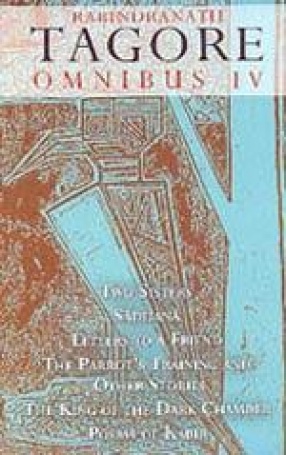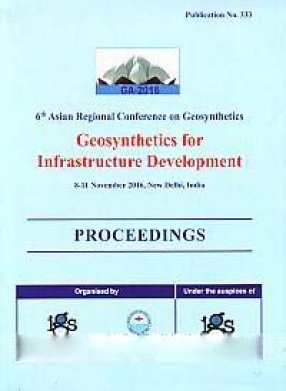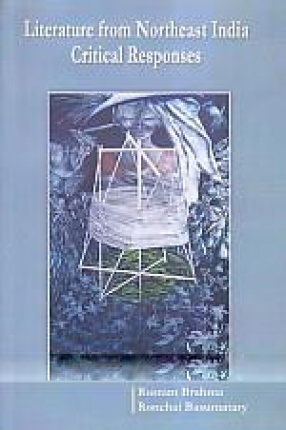Rabindranath Tagore : Omnibus IV brings under one roof six of Tagore’s major works. Two Sisters (Dui Bon) translated by Krishna Kripalani was first published in 1943. One of Tagore’s last novels, it is about the eternal conflict that arises when a man does not find a mother figure and a sweetheart in the same person. The poignancy of its theme makes the novel one of Tagore’s finest. First published in 1913, Sadhana contains eight essays written during Tagore’s six-month stay in the USA in 1912-13. They stem from Tagore’s endeavour to provide a glimpse of the ancient spirit of India, as revealed in the sacred texts and manifested in everyday life, to the western readers. Letters to a Friend (1928) consists of letters written to C.F. Andrews (1871-1940), Tagore’s lifelong friend and follower, during the years 1913-22. The book is not just a collection of letters. Apart from a preface and two essays by Andrews, the letters, divided into several chapters, are preceded by introductory notes making the whole a well-knit coherent narrative. The Parrot’s Training and Other Stories is a collection of four short stories — "The Parrot’s Training", "The Trial of the Horse", "The Old Man’s Ghost" and "Great News". The first story was translated by Tagore himself, the second by Surendranath Tagore and the last two by Amiya Chakravarty. The King of the Dark Chamber (Raja) was first published in 1914. Translated by Kshitish Chandra Sen and revised by Tagore, the play is an allegory of man’s spiritual adventure. The medieval Indian Saint-poet Kabir (1440-1518) attracted Tagore for his mystical depth, inner devotion and universal appeal. Translated by Tagore and first published in London in 1914, Poems of Kabir convey the catholic spirit of universal brotherhood and love for all.
Rabindranath Tagore: Omnibus IV
In stock
Free & Quick Delivery Worldwide
reviews
Bibliographic information
Title
Rabindranath Tagore: Omnibus IV
Author
Edition
1st ed.
Publisher
ISBN
8129106388
Length
v+501p.
Subjects








There are no reviews yet.